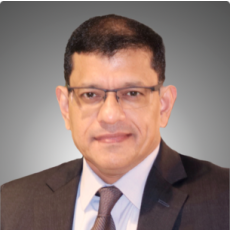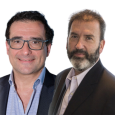What is the promise of Tevogen’s immunotherapy approach?
Our approach focuses on creating better, faster, and more cost-efficient medicines. When I founded Tevogen Bio in 2022, I aimed to address three significant challenges I observed during my 32 years in the pharmaceutical industry. First, the quality of innovations often fell short of what patients truly needed—treatments that could genuinely cure or prevent diseases rather than prolong life by a few months. Second, drug development timelines were excessively long, taking 10 to 20 years to bring a product to market. Third, the cost of therapies has skyrocketed, with the pharmaceutical market heavily reliant on the U.S., where prices are unregulated. This creates access issues globally and places financial strain on healthcare systems.
Our CTL (cytotoxic T lymphocytes) therapy addresses these challenges head-on. Unlike CAR T-cell therapies, which are last-resort treatments with severe toxicity, limited efficacy, and high costs, our approach is designed to be safer, more effective, and affordable. Our T-cell therapy is produced from a single donor for thousands of patients, bypassing the need for individualized, patient-specific manufacturing. Additionally, our process avoids the genetic modifications that often lead to side effects, making our treatment more accessible and suitable for outpatient administration.
Could you tell us more about the ways in which Tevogen’s CTL therapy improves outcomes compared to CAR T-cell treatments?
CAR T-cell therapies have inherent limitations. They are autologous, meaning they use the patient’s own T-cells, which are often already compromised by the cancer. This results in diminished efficacy and significant toxicity. Moreover, CAR T treatments are prohibitively expensive and require advanced hospital facilities, making them inaccessible to many patients, particularly those in less urban areas.
Tevogen Bio’s approach eliminates these barriers. Our allogeneic T-cell therapy uses donor-derived cells, ensuring better functionality and overcoming the limitations of compromised patient cells. Our clinical trials have shown promising safety and early efficacy data. Patients reported no significant side effects, and our therapy can be administered in outpatient settings.
This means patients can receive treatment in a physician’s office and return home the same day. Additionally, our manufacturing process allows us to produce hundreds of thousands of doses at a fraction of the cost of CAR T, ensuring global affordability without compromising profitability.
Could you tell us more about your manufacturing platform, ExacTcell, and your partnership with Microsoft?
Exact T-Cell is a platform that allows us to generate an unlimited number of T-cell-based therapies, whether for cancer, immunologic disorders, or neurologic conditions. What we need are the specific targets for these therapies, which used to be one of the most time-consuming parts of development. To address this, we partnered with Microsoft and leveraged their AI tools. This collaboration, which predates our formal announcement, has significantly accelerated the target identification process, enabling us to file patents for our first two products.
For example, we used this AI technology to identify targets for preventing cervical cancer, and our lab confirmed its accuracy. This approach allowed us to pinpoint targets that would have previously taken months to identify. AI has also shown promise in identifying other disease targets, such as for monkeypox, and has proven effective in complex laboratory tests. This integration of AI has streamlined our processes and given us a significant edge in advancing our therapies more quickly.
Do you anticipate that Tevogen Bio will develop therapies faster than industry standards?
Absolutely. Our lead product reached the clinical phase within 18 months—a timeline we are determined to surpass with our pipeline products. That 18-month period covered everything from invention to preclinical studies and entry into clinical trials, a feat made possible because we innovate in-house rather than licensing technology. Our goal is to exceed this benchmark with every new development.
AI has been pivotal in achieving this. Beyond target identification, we have developed AI tools to personalize medicine, identifying patients most likely to benefit from our therapies. This capability accelerates patient recruitment and optimizes clinical trial timelines. For example, our AI identifies HLA-restricted patient subgroups, ensuring that our treatments are tailored to the right individuals, significantly improving efficiency and outcomes.
Your pipeline includes formulations for oncology and autoimmune conditions like multiple sclerosis. How broad is the potential of your approach?
The potential is as broad as one can imagine. T-cells are the body's natural defense mechanism, protecting against infections, cancers, and other abnormalities. By leveraging this innate ability, we can address a wide range of conditions. CAR-T therapy was the first major step in utilizing T-cells therapeutically, but our approach goes further by removing the limitations of autologous, single-patient therapies.
For multiple sclerosis, for example, we target cells infected by the Epstein-Barr virus, which is implicated in the disease’s development. Once we identify the specific target, we can manufacture T-cells that eliminate those infected cells. This adaptability makes our approach disease-agnostic, capable of addressing various conditions as long as the appropriate targets are identified.
Why haven’t more companies adopted your approach, which seems rather intuitive?
That is a great question. While the concept may seem intuitive, the execution requires overcoming significant scientific and technical challenges. I have spent my career studying T-cell science and learning from prior attempts. One key breakthrough was achieving single HLA restriction, which others have struggled with. This specificity is critical for making therapies broadly applicable and effective.
Additionally, developing this approach required a mix of deep expertise, learning from past mistakes, and, frankly, some good fortune. While I am not a typical biotech startup founder, my experience in big pharma equipped me to bring this vision to life. I believe this will dictate the future of T-cell therapies and potentially revolutionize how we treat diseases.





